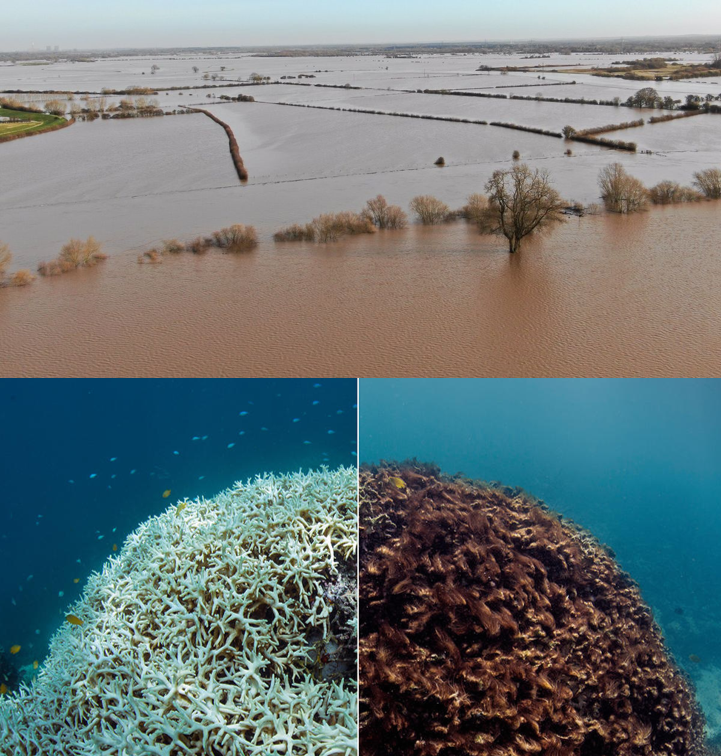The Climate Crisis
What is the Climate Crisis?
The climate crisis refers to the long-lasting changes to the global climate (e.g., more frequent extreme weather events) observed in last few decades.
It has been caused by the rise in average global temperature we've exprienced since the industrial revolution. Although the Earth’s climate has naturally fluctuated over time, the warming period we are experiencing now is occurring much more rapidly than before due to human fossil fuel emissions.
Concentrations of heat trapping greenhouses gasses in our atmosphere are now higher than they have been at any point in the last 800,000 years! The science is clear - human's are the dominant cause of the crimate crisis.
“It is unequivocal that human influence has warmed the atmosphere, ocean, and land.”
(IPCC AR6 2021)
Why does it matter?
The earth is approximately 1.1°C hotter than it was in 1850. As a result, we are already ice sheets melting at an alarming rate and more frequent extreme weather events. Temperature, rain and sunshine for 2020 were all in the top-10 highest on record for the first time in a single year.
Moreover, we are committed to further unavoidable climate change. We can expect to see sea level continue to rise displacing millions of people, growing seasons to change disrupting food supply, and habitats continue to be destroyed resulting in losses in animal species.
Climate change will affect almost all aspects of our lives directly & indirectly – our health, livelihoods, food production, clothes we wear, and our future.
What can we do?
All communities and ecosystems globally will need to adapt at some level to cope with the challenges posed by the changing climate.
However, scientists believe that if we can limit the rise in average global temperatures to less than 1.5°C we can avoid further climate change. If the current warming trends continue, we are on course to reach warming of 1.5°C around 2040.
We need to act now.
There is lots we can do to tackle climate change from using less energy to lobbying governments to do more on a national and global level. Some simple examples include:
- Calculate your Carbon Footprint
- Reduce, Reuse, and Recycle
- Save energy at home - reduce heat loss by insulating and draught-proofing your house
- Walk, cycle, or use public transport options
- Try a flexitarian diet or fully commit to a vegetarian or vegan diet
- Check that your pension is sustainable (use the Make My Money Matter tool)
- Join a local Climate Action Group
A national climate emergency has been declared by the UK Parliament, committing to a 100% reduction of its carbon emissions by 2050. The UK was the first national government to declare this. In Nottinghamshire and Derbyshire, many local councils have declared their own climate emergencies. So far, Nottingham City Council has the most ambitious target – becoming carbon neutral by across the city by 2028.
On December 2015, 195 governments agreed to a new climate deal (The Paris Agreement) declaring their commitment to limit the rise to 1.5°C. The 26th United Nations Climate Change Conference (COP26) was held at the SEC Centre in Glasgow, UK from 31 October to 13 November 2021. Several pledges were made including more than 100 world leaders promised to end and reverse deforestation by 2030 and 450 financial organisations agreed to back "clean" technology and direct finance away from fossil fuel-burning industries. More on this here.
Want to learn more about the Climate Crisis?
A Brief History of Climate Change
Met Office
The Intergovernmental Panel on Climate Change (IPCC)
